Hi there, pet lovers! 🦘
Wallabies are undeniably adorable, fascinating, and full of charm. With their gentle faces, big ears, and bouncy energy, it’s no surprise that some people consider keeping them as pets. However, wallabies are not your typical domestic companion. While they share some similarities with kangaroos, they have unique needs and behaviors that make them challenging to keep in a household environment.
In this detailed review, we’ll explore everything you need to know about wallabies—from their personality and care requirements to the costs, space needs, and ethical considerations of owning one. Whether you’re curious about these small marsupials or seriously considering one as a companion, this guide will help you understand what life with a wallaby truly entails.
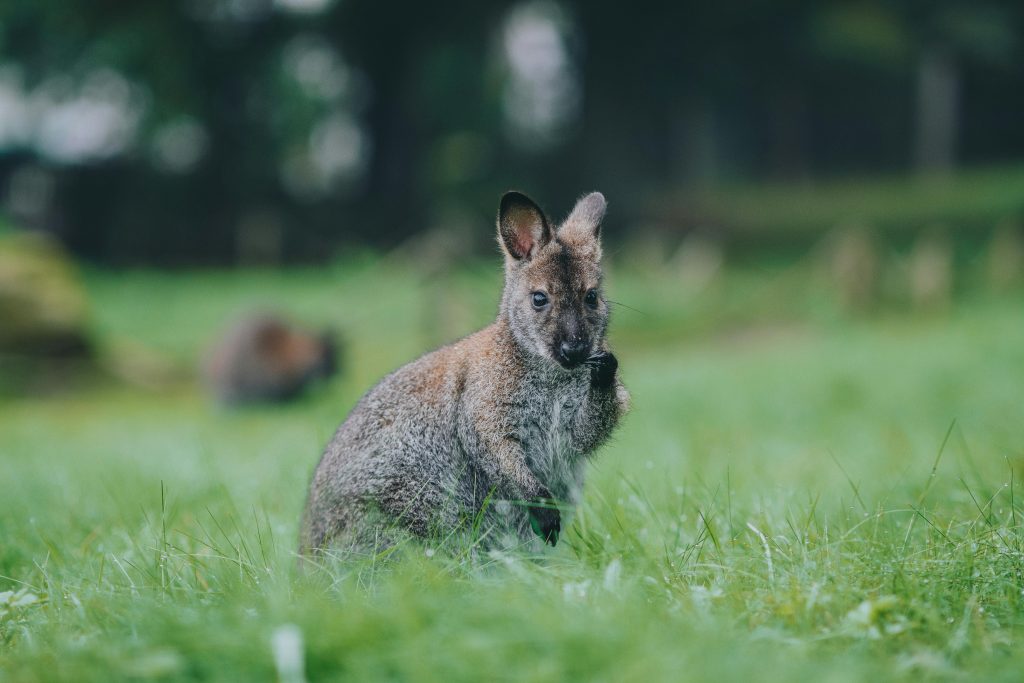
Overview
Wallabies are small to medium-sized marsupials native to Australia and nearby islands. They are members of the Macropodidae family, which also includes kangaroos and wallaroos. Wallabies are known for their strong hind legs, long tails, and gentle, inquisitive nature. Although they can form bonds with humans when raised from a young age, caring for them properly requires a deep understanding of their physical and emotional needs.
Here’s a quick summary of what makes wallabies unique:
- Handling and Temperament: Gentle but can be nervous and easily stressed.
- Care and Maintenance: Extremely high-maintenance; requires large space and specialized diet.
- Health and Durability: Sensitive to diet, stress, and temperature changes.
- Availability: Limited and often restricted by law.
- Cost: Expensive to purchase, feed, and house.
- Overall: Fascinating but not ideal for most households; best suited for sanctuaries, licensed facilities, or large rural properties.
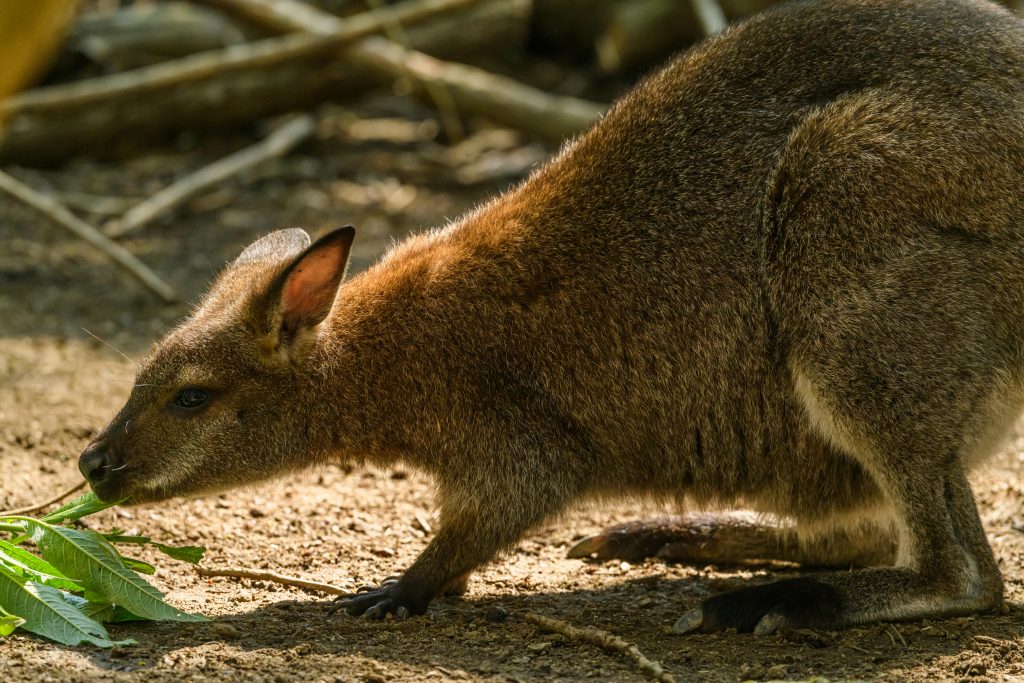
Why Choose a Wallaby?
Wallabies are captivating creatures that exude both innocence and curiosity. Their hopping movements and social nature make them delightful to watch and interact with. Some owners describe them as affectionate and loyal when hand-raised, often following their caretakers around or resting close for comfort.
However, potential owners should know that wallabies are wild animals by nature. They thrive best in environments that mimic the open grasslands and woodlands of Australia. While they can form emotional bonds with humans, they require extensive care, attention, and environmental enrichment to stay happy and healthy.
Wallabies are social animals, and loneliness can cause behavioral and psychological distress. In most cases, they should be kept in pairs or small groups. Their needs go far beyond what most domestic settings can offer, which is why ownership should only be considered by those with proper space, experience, and legal permission.
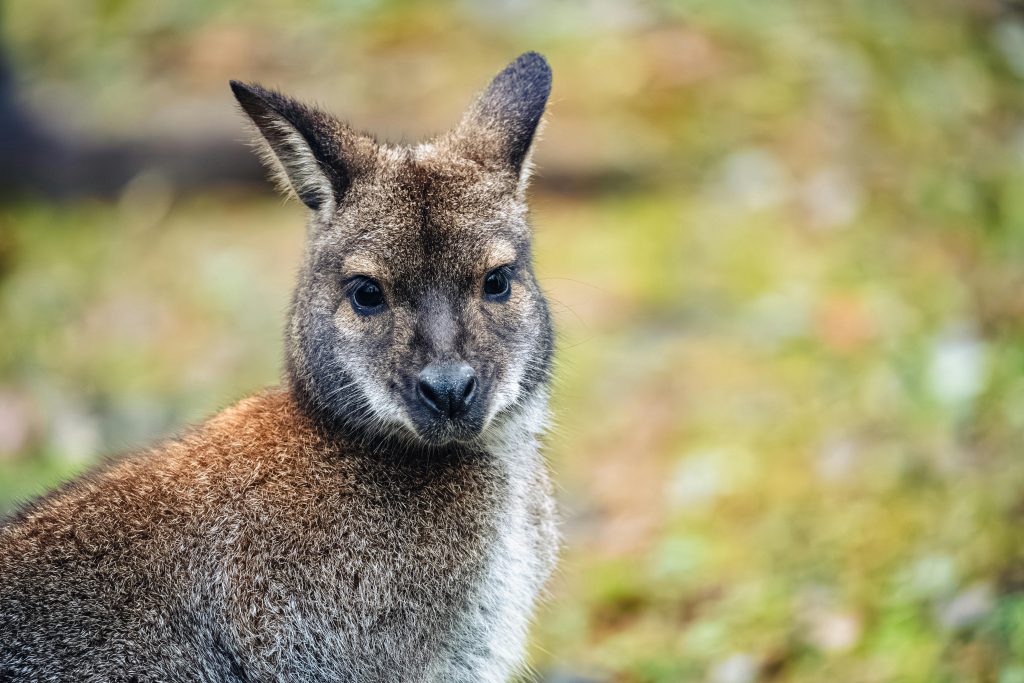
Handling and Temperament
Wallabies are gentle and shy animals, but their personalities can differ depending on their upbringing. Hand-raised wallabies that have been bottle-fed from infancy can become quite tame and affectionate. They often bond with their caregivers, responding positively to touch and attention.
However, their calmness can change quickly under stress. Sudden noises, unfamiliar environments, or rough handling can frighten them, causing them to jump or kick defensively.
Personality Traits
- Naturally curious but easily startled.
- Social and happier when kept with other wallabies.
- Intelligent, capable of recognizing caregivers and routines.
Handling Tips
- Always approach them calmly and quietly.
- Never grab or restrain them forcefully—it can cause panic or injury.
- Allow them to come to you; trust takes time to build.
- When transporting, keep them in secure pouches or enclosures to reduce stress.
While baby wallabies (called joeys) can be cuddly and affectionate, adults are far more independent. They rarely enjoy being held for long periods and may resist confinement. Respecting their boundaries is key to maintaining a healthy relationship.
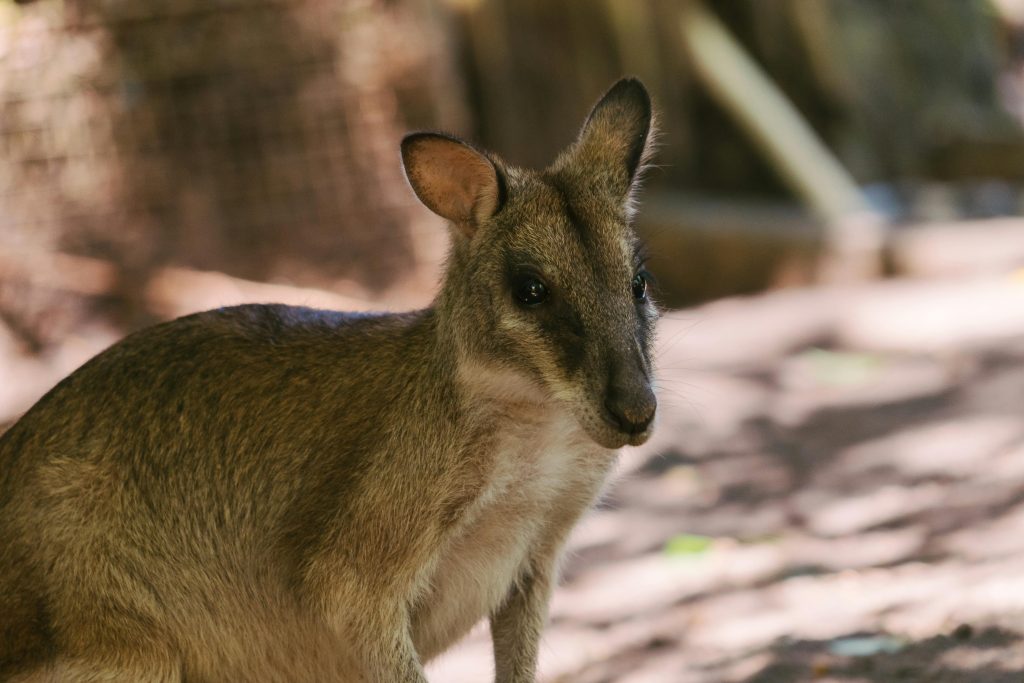
Care and Maintenance
Caring for a wallaby is a major responsibility that requires commitment, space, and resources. Their daily routines revolve around feeding, exercise, and providing mental stimulation. Below are the primary care aspects to consider.
Enclosure Setup
Wallabies need large, secure outdoor enclosures where they can hop freely and graze.
Recommended Space
- Minimum: 200–400 square meters per wallaby (around 2,000–4,000 square feet).
- Fencing: At least 2 meters (6.5 feet) high to prevent escape.
- Flooring: Natural grass or soft soil to cushion their powerful hops.
- Shelter: Provide shaded areas or small sheds to protect them from sun and rain.
Indoor Living
Keeping wallabies indoors is not recommended. However, some owners allow young joeys to stay inside temporarily in pouches or soft beds until they mature. During this time, diapers are often used at night to prevent accidents—just as shown in some hand-raised wallaby care routines.
Feeding and Nutrition
Wallabies are herbivores, and replicating their natural diet is critical for their health.
Diet Breakdown
- Primary diet: Fresh grasses, hay, and native shrubs.
- Vegetables: Cabbage, carrots, sweet potatoes, and leafy greens.
- Fruits: Apples, bananas, and berries (in small amounts).
- Milk (for joeys): Specialized marsupial milk replacer (around 200 ml or 7.5 oz daily for young joeys).
- Supplements: Calcium and vitamin D as prescribed by a vet.
Feeding wallabies can be time-consuming and costly. Improper nutrition often leads to serious issues like bone disease, bloating, and malnutrition. They should always have access to clean, fresh water and be prevented from chewing electrical cords or furniture—a common issue among young, curious joeys.
Exercise and Enrichment
Wallabies need constant physical activity to stay healthy. Without enough space to hop, their muscles and joints can weaken. Enclosures should include natural obstacles, open grass areas, and safe toys to stimulate their curiosity.
Daily interaction—like hand-feeding, grooming, or allowing supervised exploration—also helps maintain their mental health and reduce anxiety.
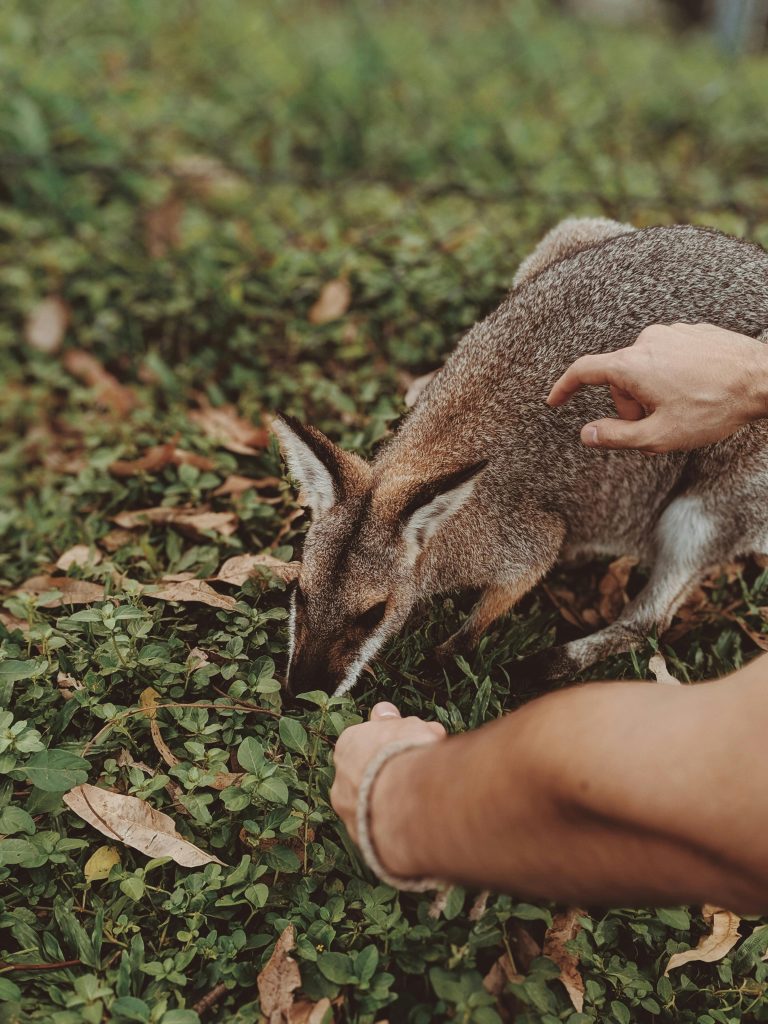
Health and Durability
Wallabies are delicate animals when it comes to health. Their well-being depends on proper diet, clean environments, and minimal stress.
Common Health Issues
- Nutritional Deficiencies: Especially calcium or vitamin D deficiency, leading to “soft bone” syndrome.
- Stress-Related Illnesses: Wallabies are prone to anxiety, especially orphans or those kept alone.
- Respiratory Infections: Can result from damp bedding or poorly ventilated shelters.
- Parasites: Internal and external parasites are common and need regular deworming.
Preventative Care
- Regular vet checkups (preferably with an exotic animal specialist).
- Maintain proper hygiene in feeding areas.
- Provide balanced nutrition and avoid processed human food.
- Ensure safe, quiet surroundings to prevent stress-related problems.
Wallabies live around 10–15 years in captivity, though lifespan varies depending on care quality and environment.
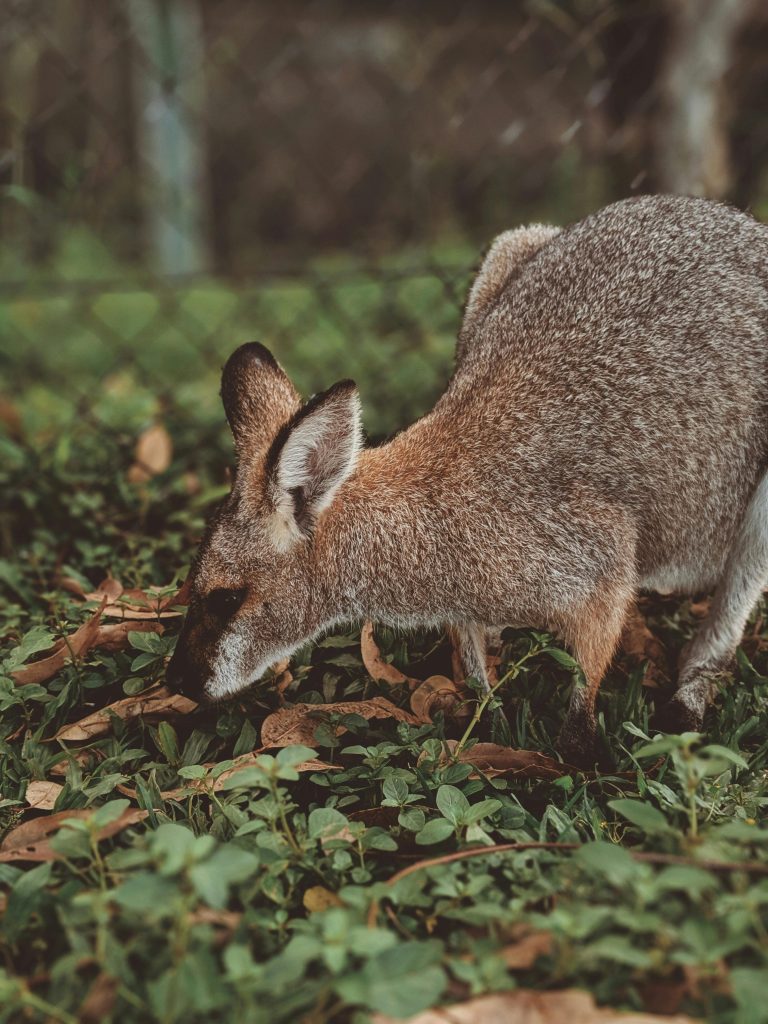
Availability and Cost
Wallabies are not common pets, and their ownership is heavily regulated in many regions.
Where to Get One
- Licensed Breeders: The only ethical and legal source in areas where ownership is allowed.
- Wildlife Sanctuaries: Occasionally rehome rescued or orphaned joeys under strict supervision.
- Illegal Trade: Should be avoided entirely; wild-caught wallabies often suffer trauma and health issues.
Cost Breakdown
- Purchase Price: $1,000 to $3,000 USD (depending on species and age).
- Setup Cost: $2,000 to $5,000 for fencing, shelter, and habitat preparation.
- Monthly Expenses: Around $150–$300 for food, bedding, and maintenance.
- Vet Costs: $100–$200 per visit, often higher due to the need for exotic specialists.
Owning a wallaby is a serious financial commitment that goes far beyond initial purchase costs.
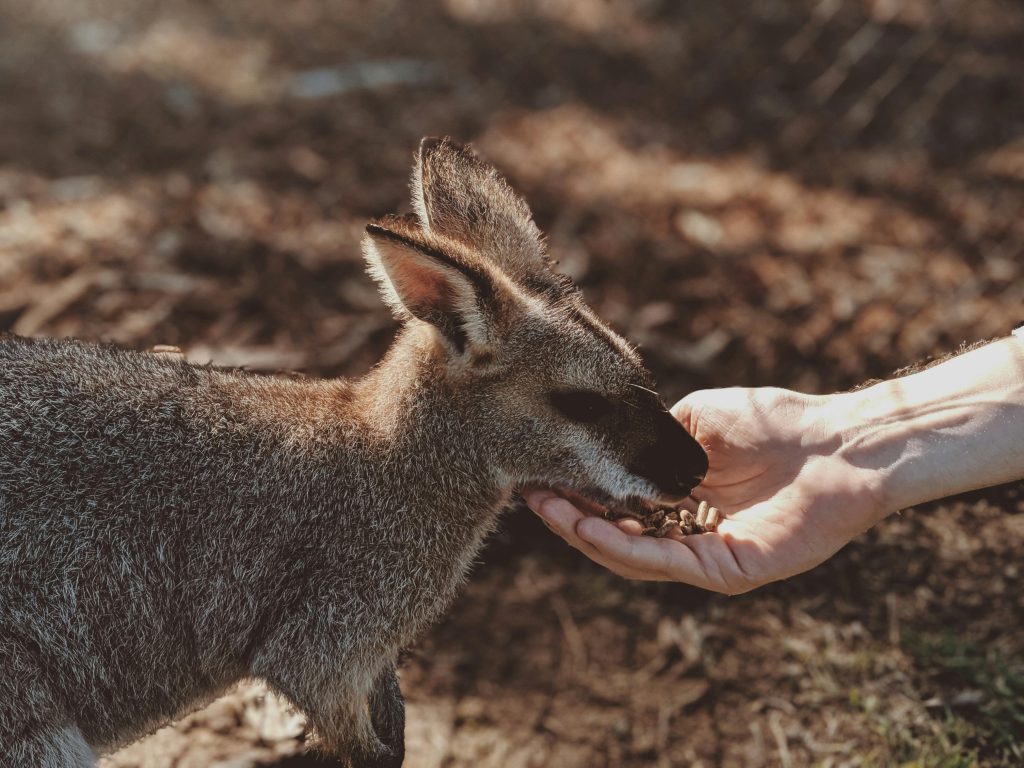
Pros and Cons
Pros
- Gentle, curious, and social creatures.
- Can bond strongly with caregivers.
- Unique and educational experience for wildlife enthusiasts.
- Fascinating to observe and care for.
Cons
- Require large outdoor spaces.
- Illegal to own in many areas without permits.
- Very sensitive to diet and stress.
- Can cause damage indoors (chewing cords, scratching furniture).
- Veterinary care can be difficult and expensive to find.
- Need companionship and constant attention.
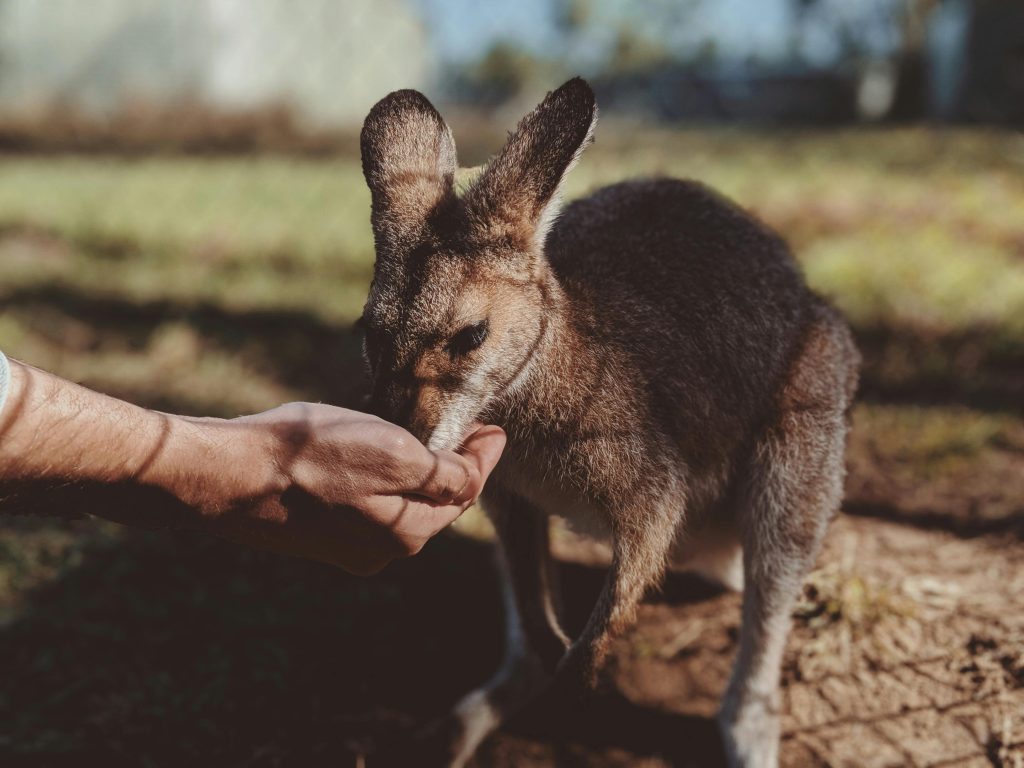
Final Thoughts
Wallabies are extraordinary animals that embody the beauty of Australia’s wildlife. Their playful nature and deep emotional capacity make them unforgettable companions—but only for those who can truly meet their complex needs.
Owning a wallaby requires far more than affection; it demands space, resources, patience, and legal approval. They thrive best in large, natural environments where they can graze, hop, and socialize freely. For most people, wallabies are best admired from afar or supported through wildlife sanctuaries and conservation programs.
If you genuinely love wallabies, the most ethical way to appreciate them is by helping protect their habitats or sponsoring rescued joeys rather than trying to keep one as a pet. These gentle marsupials belong where they can live as nature intended—wild, free, and thriving under the sun.
For more detailed animal care tips and reviews, stay tuned to our blog and don’t forget to subscribe for updates! 🌿🦘

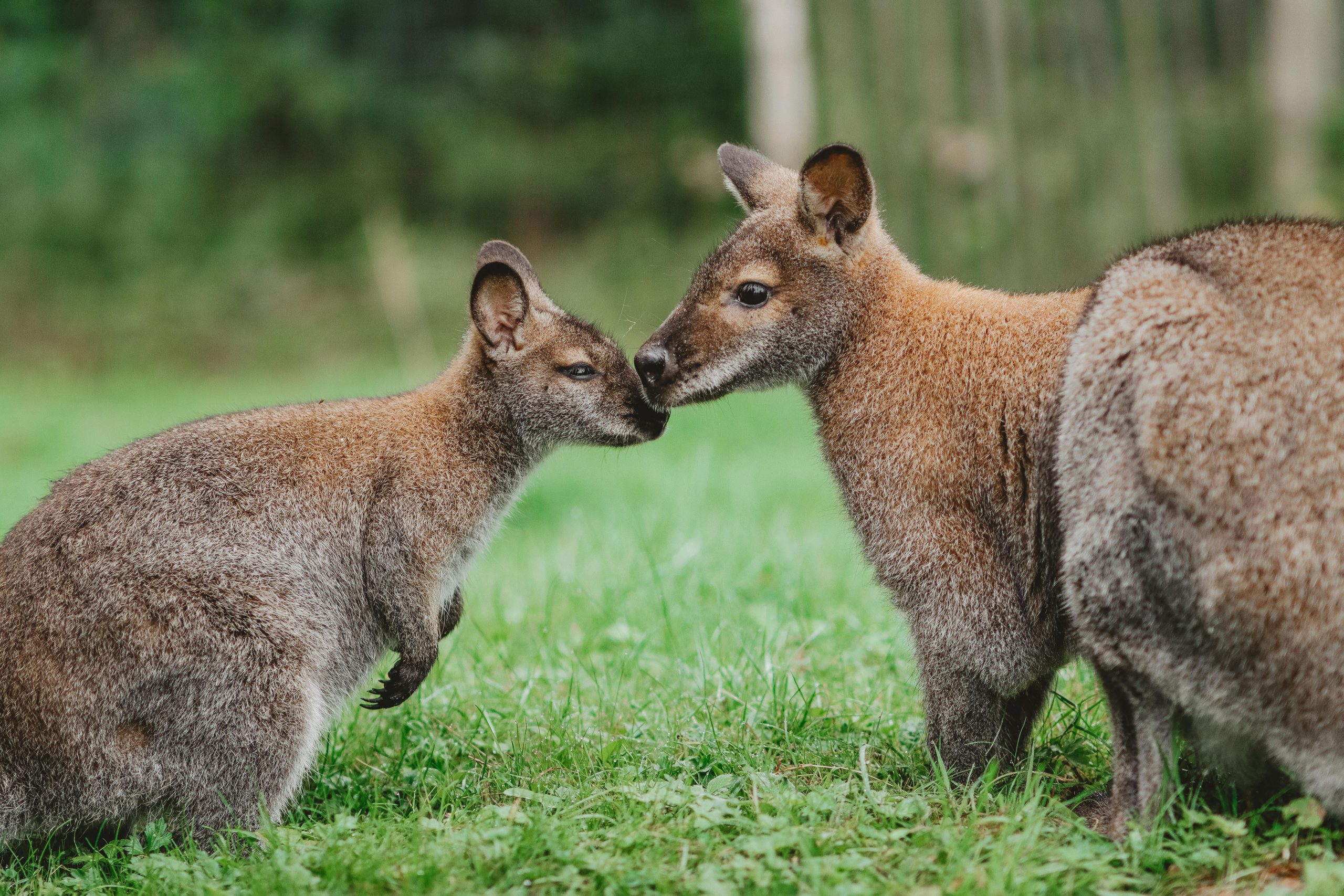

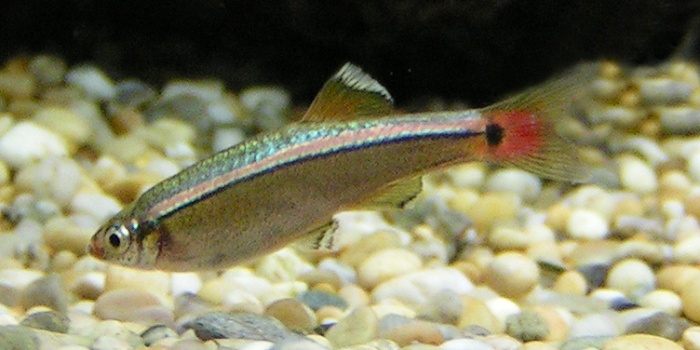
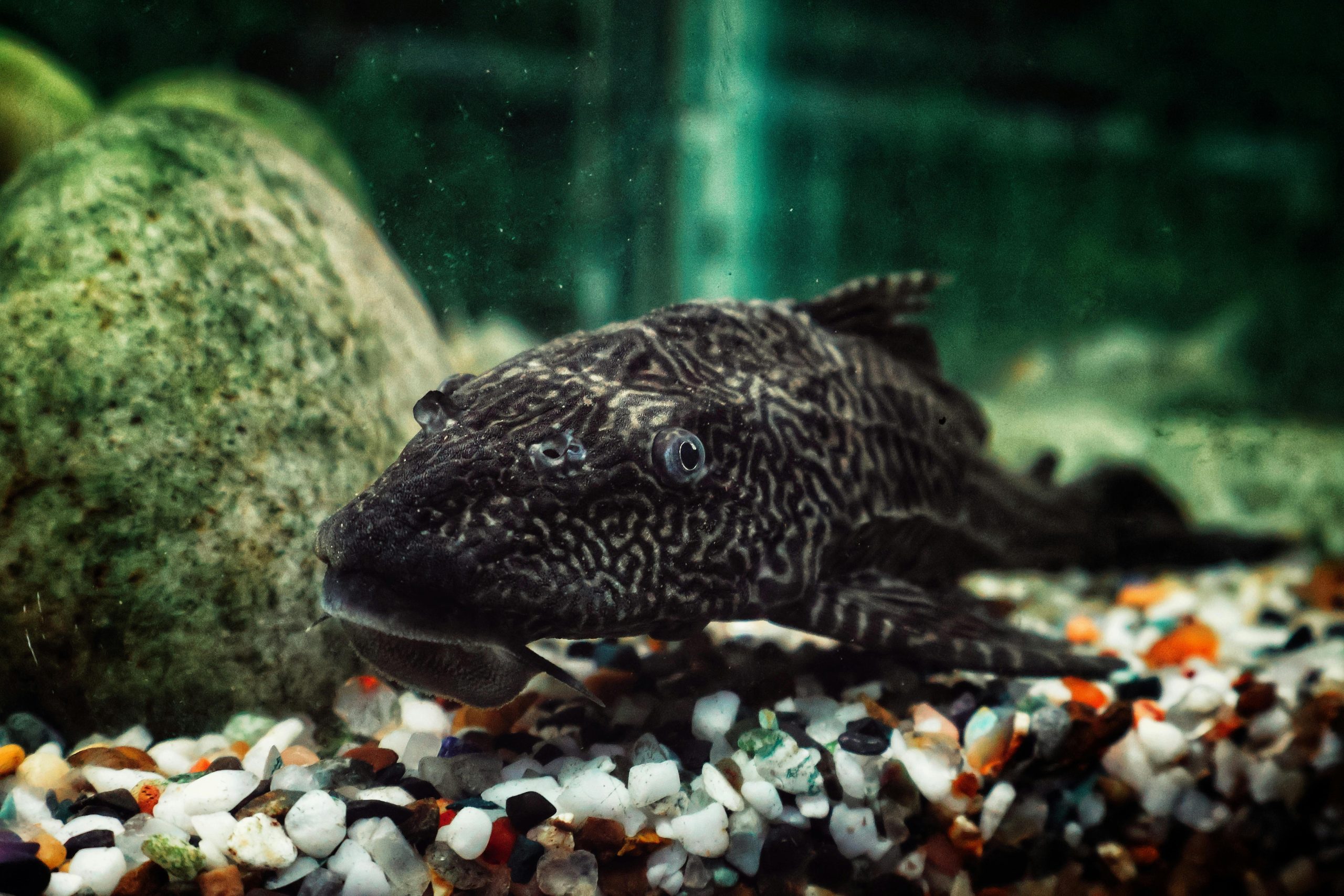
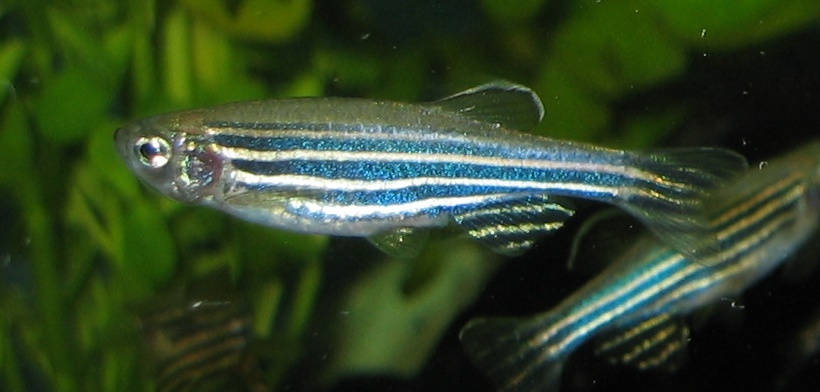
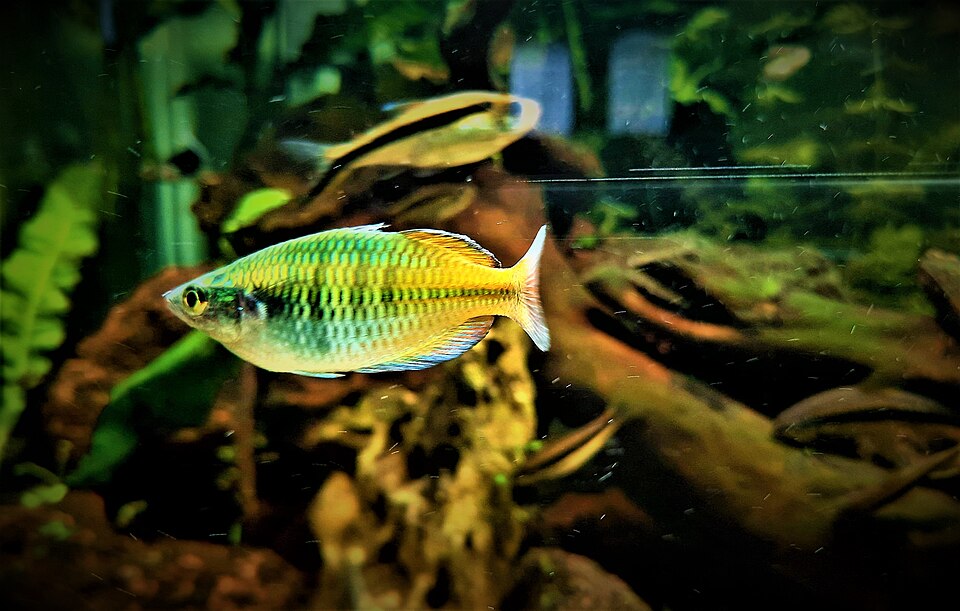
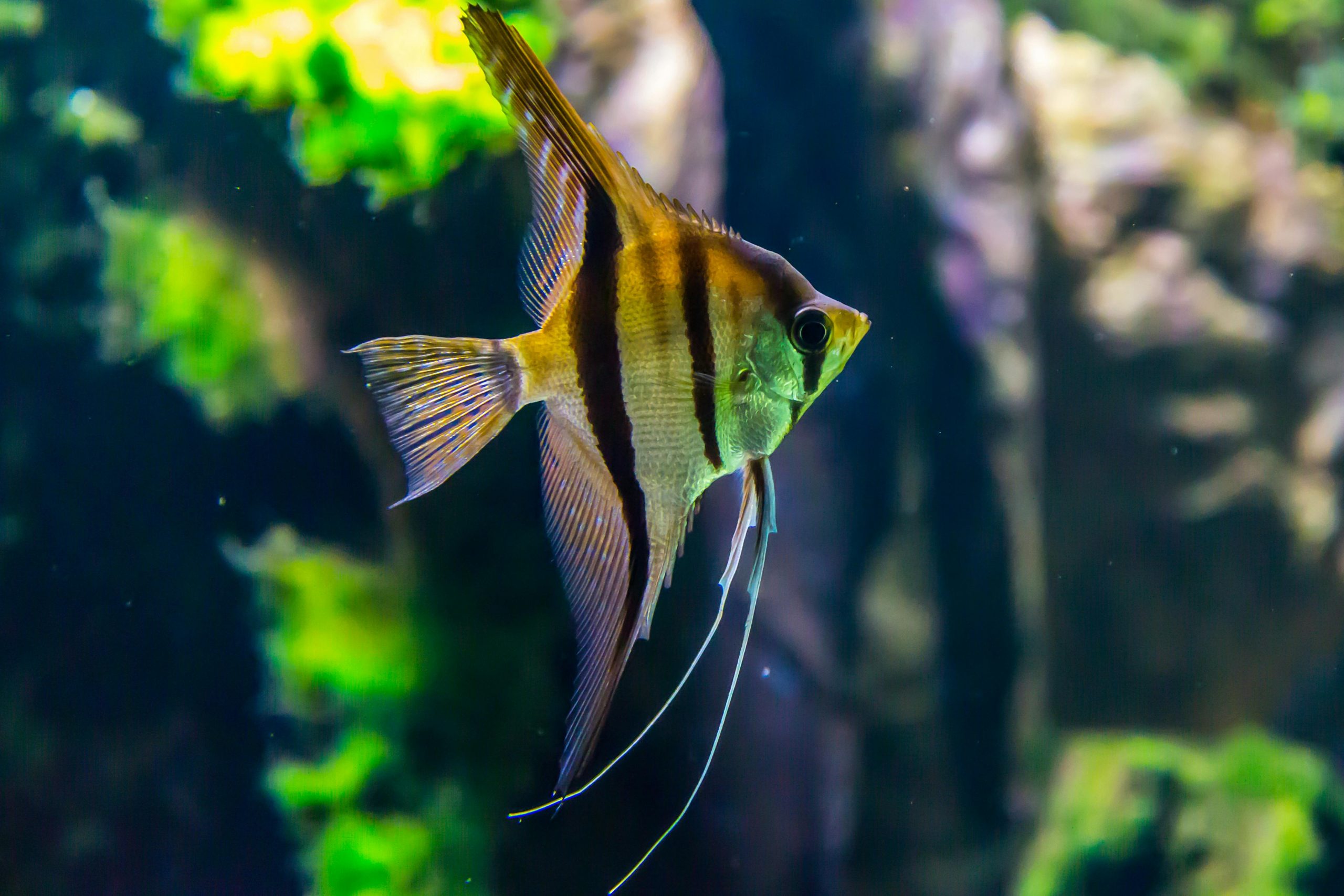
Leave a Reply